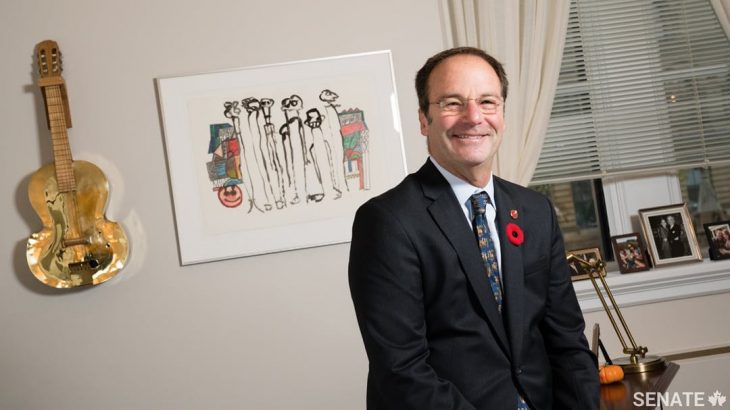
By Christopher Guly
OTTAWA – The creative industry applauded the House moving bill C-11 forward after accepting most of the Senate’s amendments Thursday night.
But the industry also held some reservations about certain provisions as the bill heads back to the Senate and inches closer to becoming law.
The law would require streaming services to contribute in an equitable and flexible way toward Canadian content, while prioritizing support for content from francophone, Indigenous, LGBTQ2+ and racialized creators.
The federal government obtained support from the opposition, New Democrats and the Bloc Quebecois to accept 20 of the Senate’s 26 amendments, including two with modifications.
According to the office of senator Marc Gold, the government representative in the upper chamber, the changes include strengthening the protection of privacy; promoting innovation; maintaining the “vital role” of independent producers in Canada’s broadcasting system; supporting the production of more original French language programming; standardizing references to Black and racialized communities throughout the bill; and enhancing the accountability of the CRTC by having its reports tabled in Parliament.
Gold said C-11 will be “a key priority” when the upper chamber resumes sitting during the third week of April.
“We are pleased the new legislation aims to require wealthy streaming services pay their fair share,” Eleanor Noble, national president of the Alliance of Canadian Cinema, Television and Radio Artists (ACTRA), said in a statement. “But Bill C-11 falls short in enshrining protections for performers.”
ACTRA said the government’s inclusion of section 3(1)(f), which sets out guidelines for the use of Canadian performers by broadcasters under the Canadian system, creates two different standards for Canadian and foreign broadcasters. “This weakens obligations for Canadian broadcasters to use Canadian artists and establishes a lower standard for foreign online services,” said the national union of professional performers working in recorded media that represents over 28,000 members.
The federal government can rectify the problematic subsection during the implementation of C-11, and ACTRA said that it would engage with the Liberals, “via the policy directive to the CRTC, and participate vigorously in the process to set the rules for all broadcasters,” Noble said.
Hailing C-11 as a “landmark overhaul” of the Broadcasting Act that both levels “the playing field for foreign and domestic players” and requires global streamers to invest in original Canadian programming, Warren Sonoda, president of the Directors Guild of Canada (DGC) said in a statement that with broad Liberal, NDP and Bloc support, the House “has just taken the greatest step forward to modernize and strengthen Canada’s broadcasting system in over 30 years.”
Sonoda said that once the bill passes Parliament and the federal cabinet sends a policy direction to the CRTC to implement the bill, he hopes that Canadian Heritage Minister Pablo Rodriguez “will commit to filling pending vacancies at the commission with those who represent the views of creatives and creators.
“This new act gives the CRTC flexibility in setting investment requirements for Canadian and global players, but we do not believe that differing obligations should mean weaker obligations for these multi-billion-dollar global corporations generating enormous profits from Canadian audiences.”
“We now stand at the cusp of creating a framework that could become a worldwide cultural model for ensuring diverse, original storytelling in the digital age,” Sonoda said.
Neal McDougall, assistant executive director of the Writers Guild of Canada (WGC), said in a statement that “the time has long since come for the major streaming services that benefit from the Canadian market to contribute back to it in the form of programming for Canadian and global audiences that is made by Canadian creators and supports Canadian jobs.
“The smaller Canadian market simply cannot compete with the global dominance of Hollywood without the support such regulation is intended to provide, especially in risky and high-cost genres like drama, documentary, children’s programming and animation,” McDougall said.
Still, more work needs to be done, said Alex Levine, president of the WGC.
“Given the problematic language in sections 3(1)(f) and 3(1)(f.1), the government must issue a policy direction clarifying that foreign streamers must nevertheless make maximum use of Canadian key creative talent, including screenwriters, in the Canadian programming they commission,” he said in the guild’s statement.
In addition, concerns were raised about a Senate-introduced user-protection amendment that was not adopted by the House.
The amendment concerns section 4.2 (2) of the bill, which OpenMedia said in a backgrounder “re-establishes CRTC regulation of most audiovisual content at the CRTC’s discretion, based on three criteria: “whether the content generates revenue for someone, indirectly or directly; whether any part of the content has been broadcast on a more traditional broadcasting platform; and whether the content has been assigned a ‘unique identifier’ under any international standards system.”
Amendment 3 from the Senate Transport and Communications Committee, would have protected user-generated content from regulation.
“This would have ensured that ordinary Canadian users who upload content to platforms like YouTube, Instagram or TikTok would not have their content treated as CRTC-regulated broadcasting under the act.”
“Plainly excluding user content was a slam dunk” and would have “achieved the bill’s core aim on commercial content and provided considerable support for Canadian artists, while keeping everything else clearly outside of the CRTC’s regulatory control,” said Matt Hatfield, campaigns director for OpenMedia.
“Without this amendment, we’re relying on the good behaviour of the CRTC and the minister of Canadian Heritage to leave our content alone – today, and under every future minister and commissioner,” adding a good policy direction will not fix it.
“An extremely broad set of exceptions in 4.2(2) re-include content that earns revenue, has a unique ID number or appears on broadcast services, meaning the vast majority of user content may now be regulated.”
Photo of senator Marc Gold via the Senate.


